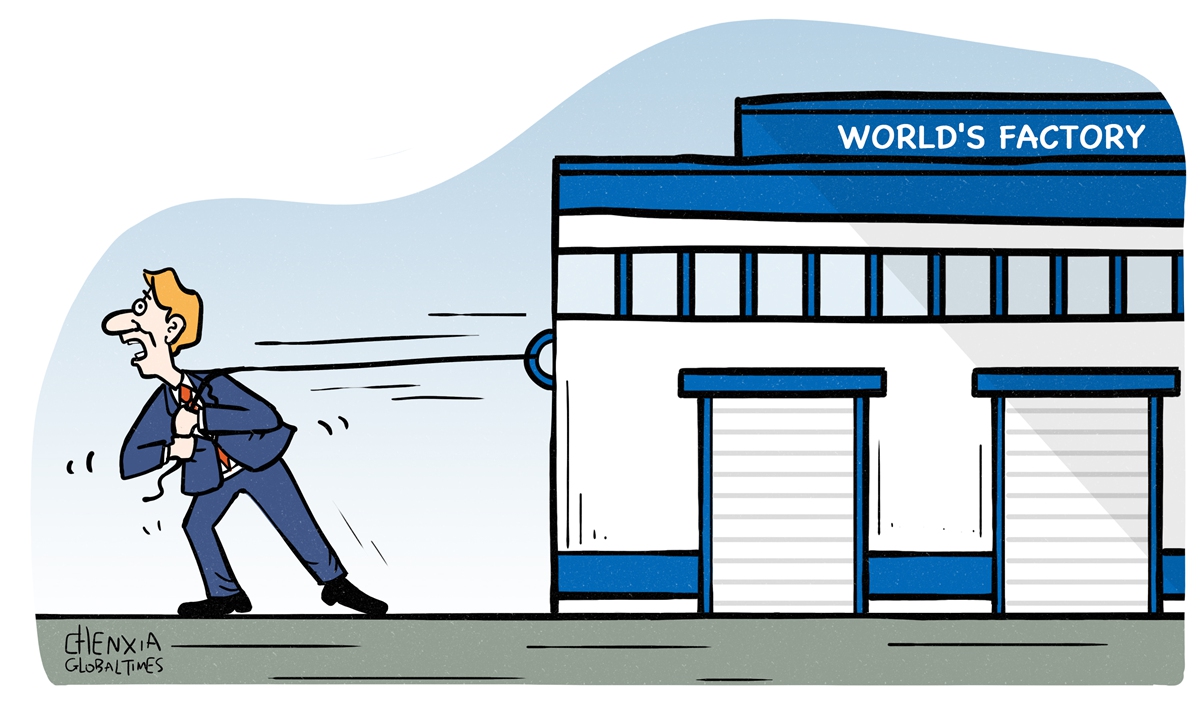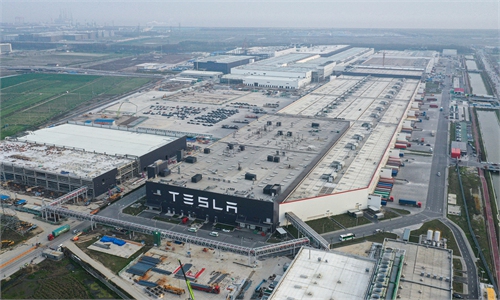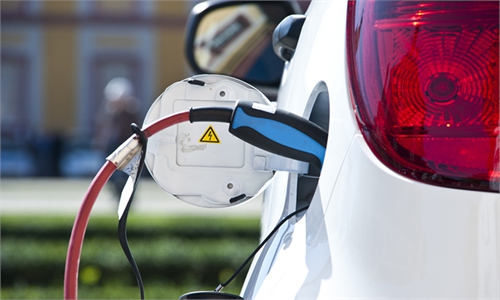
Illustration: Chen Xia/Global Times
Elon Musk, co-founder and CEO of US electric vehicle (EV) company Tesla, on Monday celebrated the milestone output of the company's Shanghai Gigafactory on Twitter, posting "congrats Giga Shanghai on making millionth car! Total Tesla's made now over 3 [million]."Against the backdrop of disruptions to supply chain caused by the COVID-19 pandemic and the US' decoupling moves, Tesla's Shanghai factory contributed to one-third of Tesla's total global output in just a few years of production. The capacity of the Shanghai factory has greatly outperformed expectations and become an indispensable pivot of Tesla's global ambitions.
Supply chain issues have previously been a major concern for Tesla. The company, in Musk's words, has been going through "supply chain hell" for years. Musk in June called Tesla's new factories in Austin, Texas, and Berlin "gigantic money furnaces." In comparison, the Shanghai factory has clearly become the source of Musk's confidence.
Some Western media outlets claimed earlier that China's anti-epidemic efforts to combat the Omicron flare-up in Shanghai have "disrupted Tesla's second quarter," but Tesla said in its earnings report that the Shanghai plant achieved "the highest monthly vehicle production in history" in June. Moreover, exports from the Shanghai factory have repeatedly hit new highs. Musk said after Tesla released its earnings report that if nothing unexpected happens, Tesla "may set a new [output] record in the second half of this year."
The success of Tesla's Shanghai plant is a testament to China's fast-growing EV sector and its unique advantages as a global manufacturing hub. The factory achieved a milestone output despite a slew of challenges, which speaks to the stability of the Yangtze River Delta supply chain centered on Shanghai and effectively refutes attacks coming from foreign media against the resilience of the Chinese economy.
The US-led small clique has been pushing for decoupling of global supply chains, trying to use political coercion to force companies out of the Chinese market. In order to collaborate with the doomed scheme, Western propaganda machines and think tanks have been sparing no effort to smear China's manufacturing and supply chains.
For instance, The Wall Street Journal in May reported that the anti-epidemic measures in Shanghai "reignites supply-chain problems for US companies" like Apple, GE and Estée Lauder. In June, CNBC claimed that the epidemic control measures in Shanghai had added more pressure to global supply chain.
These doomsayers always try to capture any local negative phenomenon and exaggerate, in their relentless efforts to portray China as the source of destabilization of the global supply chain. In fact, China has been playing a key role in underpinning the global supply chain. The success of Tesla's Shanghai factory is not an isolated case. There are many other foreign companies that are benefiting from resilient supply chains in China.
According to statistics from the China Council for the Promotion of International Trade, 91 percent of foreign-funded enterprises maintained or expanded their business scale in China in the second quarter, demonstrating foreign-funded enterprises' confidence in the strong resilience of the Chinese economy and supply chain network.
In the process of integrating into the global supply chain, China has established a relatively complete manufacturing system and has become a key participant and contributor to the global supply chain, forming a model that is difficult to replicate and replace by other countries. Any rational foreign company would choose the Chinese market. They are increasingly calling on the US to reduce political interference and not act against the globalization trend.
The stability and resilience of China's supply chain will not be overshadowed by political slanders. Tesla Shanghai factory's milestone shows China is the most resilient link in global supply chain. This will not change as China continues to enhance its new competitive advantage across global supply chains. China will continue to help stabilize the global supply chain in the second half of the year amid government policy measures to stabilize the economy, while tackling the impact of COVID-19 via targeted means.
The author is an editor with the Global Times. bizopinion@globaltimes.com.cn



